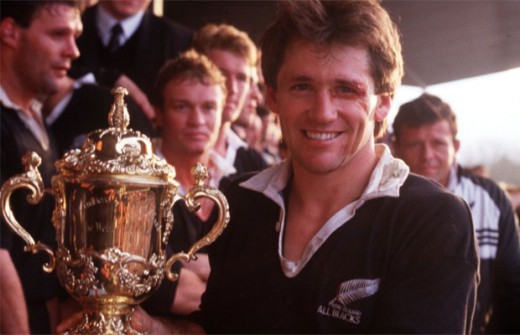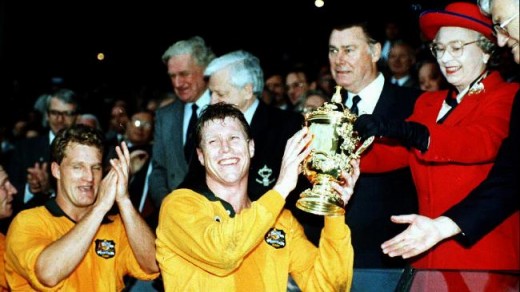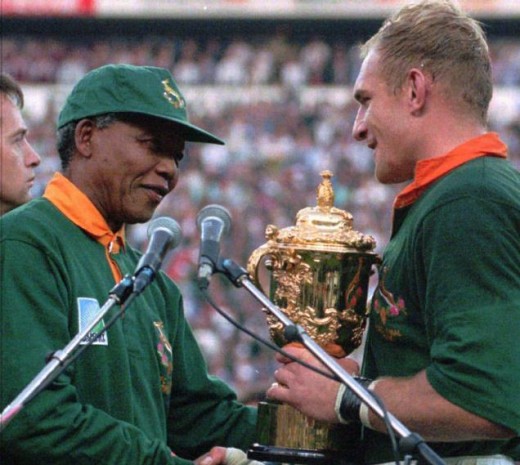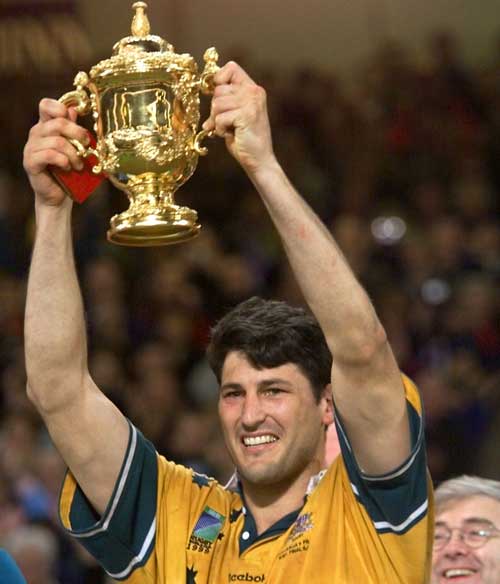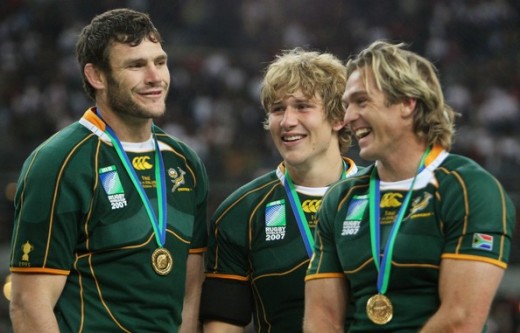We’re a month away from the 2011 Rugby World Cup’s opening match between the All-Blacks and Tonga, so we thought it might be a good time to check the pages of history and give you a run down of the previous winners in the relatively young tournament (inaugural World Cup was in 1987, also in New Zealand) which has been contested six times so far.
1987 – Hosted by New Zealand & Australia, Won by New Zealand
Image: Source
Rugby Union wasn’t professional, and South Africa didn’t even play. Besides the seven “big” nations that were invited (Australia, New Zealand, England, France, Wales, Scotland, Ireland) nine invitations were given out instead of a qualifying tournament like we have these days. Due to the huge difference in quality between half the sides, many matches ended in blowout and five of the highest scoring matches in Rugby World Cup history took place in 1987.
The All-Blacks won the final against France 29-9, their lowest margin of victory throughout the championship. All-Blacks players led the scoring charts – Grant Fox led with 126 points while Craig Green and John Kirwan scored six tries each.
1991 – All Five Nations (Before Italy Joined), Won by Australia
Image: Source
After stunning the All-Blacks in the semi final with a 16-6 win (The Wallabies didn’t concede a try in the Semi or the Finals), a showdown with England, beating France and Scotland in the knockout stages with, shall we say, unpleasent to the naked eye kind of Rugby, at Twickenham, was on the cards.
David Campese urged England to play open Rugby instead of the forward based style they showcased until the final. The English responded to his criticism, but in the Final Australia dominated on defense and didn’t have a problem stopping the tries from coming. They won 16-6. David Campese led the tournament with six tries scored.
1995 – Hosted and Won by South Africa
Image: Source
Much bigger than a usual Rugby World Cup, the 1995 edition was the first time Springboks participated and the first major tournament hosted by the nation following the end of apartheid. The importance of this Springboks side has been well documented in films, books and who knows what else. The most incredible thing to come out of this tournament was the explosion of Jonah Lomu onto the scene, a player that combined speed, quickness, agility and the power of a freight train into one. He scored 7 tries, but failed to score one in the final, as South Africa won 15-12 in extra time.
1999 – Wales and the rest of the Five Nations, Won by Australia
Image: Source
Australia became the first nation to win the Web Ellis trophy for a second time, with a dominant and clinical style of rugby unlike the 1991 team. Jonah Lomu was even more dominant than in 1995, scoring 8 tries, but France shocked the All-Blacks in the Semi Final, despite Lomu scoring two tries. Australia beat South Africa in the Semi Final 27-21 in extra time with 8 Matthew Burke penalties. They beat France 32-12 in the final.
2003 – Hosted by Australia, won by England
Image: Source
It was England’s tournament from the beginning of the year, looking so dominant through the Six Nations and the Test matches. When it was all said and done, it was Jonny Wilkinson’s drop goal that gave England their first trophy and making them the first and only Northern Hemisphere side to win the Rugby World Cup. Wilkinson also led the tournament in points with 113.
2007 – Hosted by France, Won by South Africa
Image: Source
England kicked their way into the final, behind Jonny Wilkinson, beating Australia and France in the knockout stage. South Africa were waiting in the final, and beat England 15-6, winning their second title, joining Australia as the only nations with two trophies. Like in the 1995 final, they didn’t score a try in the final, the only champions without a try scored in the final. Bryan Habana of South Africa led the tournament in tries with 8.
